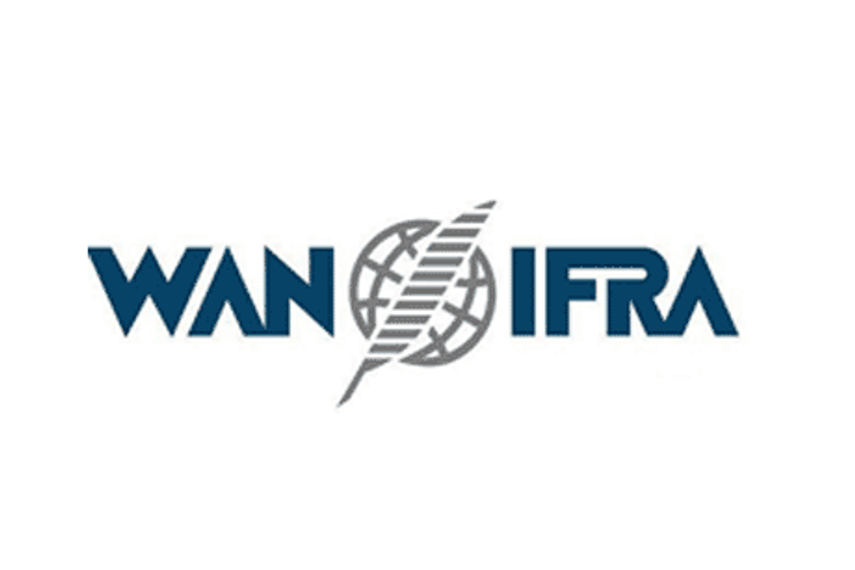
India earned the title of The World Association of Newspapers and News Publishers’ (WAN-IFRA) ‘World Young Reader Country of the Year for 2013’, for its news media initiatives aimed at attracting young readers.
Entries from several titles prompted the WAN-IFRA jury to make the award: Malayala Manorama, The Times of India, The Telegraph, Mathrubhumi, Dainik Bhaskar newspapers, i-next, The Hindu and Ebela, according to the official communiqué.
This is part of the annual Young Reader Prize competition organised by WAN-IFRA.
“Indian news publishers continue to make clear their commitment to youth on all possible fronts by being right there every time there is a first in a person’s life,” said Aralynn McMane, WAN-IFRA executive director for youth engagement and news literacy. The jury was composed of an international array of youth engagement specialists who are either past multiple winners of the prize or experts on the topic. “I noticed the possibility of such a country award early, so didn't let our Indian jury member join the deliberations until after the rest of the jury had made this decision,” McMane explained.
According to the official statement, the winning Indian news publishers have created a wide array of strategies, from effective environmental actions to practical lessons about journalism to simply promoting laughter. “The numbers are huge, but many of the ideas can be adapted for much smaller markets,” it said.
Here are their accomplishments for 2012, as enlisted by WAN-IFRA:
The Telegraph
TTIS (The Telegraph in Schools, circ. 50,000 weekly) runs a number of projects, including the Tiger Reporter Programme in which student reporters from 82 schools learn how to do news then produce most of the content for the 16-page publication. Related projects in 2012 included the Go Green Movement clean-up of a pond and streets, plus the distribution of trash bins and planting of 150 trees and gathering pro-environment pledges, on World Environment Day in an action supported by Coal India. Six months after the campaign, all of the installed dust bins remained intact, 127 of the 150 tree saplings were still standing, and the pond did not appear to have collected more trash. India Coal also agreed to expand the Go Green Movement for the 2013-14 year and proposed a 3-month program in 100 schools.
The Times of India
The paper’s school edition (revamped in 2011, circ. now of 690,000 weekdays) has most readership for its school news, sports and themed pages about entertainment, books, music, movies, travel, science, and technology. Other pages hold national and world news, opinion mostly from user generated content and games and puzzles. Some content is sponsored. Contests require responses via social media, and there are seven branded journalism related activities, a news-related national quiz and a spelling bee. A membership scheme offers discounts to stores and restaurants and a quarterly guide offers teachers tips for using the newspaper in education.
Mathrubhumi
This title’s SEED program, which stands for Student Empowerment for Environmental Development, counted 5523 schools and over 2 million students participating in the program in 2012, a huge growth since its start in 2009. The programme raises awareness about what is damaging the environment and encourages activism promoting its protection among youth, ages 10 to 17. With help from the Coconut Development Board, it set up a student parliament in 2012 that included persuasive speaking and sessions with government officials to discuss ways to assure both the survival of coconut trees and the jobs sector they support.
Malayala Manorama
In 2012, this newspaper with a long history of award-winning youth initiatives, launched “Nallapaadam” [Good Lessons] project that rewarded the school with the best social service initiative attracting participation from more than 600,000 students in 4,500 schools, and also the “Pratheeksha” [Hope] Project in support of handicapped children and their families that resulted in the establishment of 25 daycare facilities offering free food, education, treatment, and transportation; four specialized medical clinics, and extensive teacher and parent workshops.
I-next
In the wake of the fatal gang rape of a 23-year-old woman in Delhi that involved a juvenile perpetrator, the paper used surveys and a six-day campaign to help local youth and families understand the background and implications of a high court ruling that one’s level of mental maturity must be taken into account when granting juvenile status. Also in 2012, the paper observed World No Tobacco day by doing pulmonary function tests for 3 600 people, mostly at partner government and corporate offices, in 12 metro areas in order emphasize the effects on lung capacity of tobacco use. Each area’s edition then published “report cards” of results. In all, 27 percent of those tested had some sort of lung problem, mostly (7 of every 10 cases) linked to tobacco use. Also, the paper did a World Earth Day project to encourage re-use of paper that had children make bags with a 2 kilo capacity from old newspapers to replace the plastic bags they got from stores. A total 60 schools and 6600 students participated.
The Hindu
Its school edition, established in 2012, has a circulation of 250 000 among 12- to 16-year-olds weekdays at 2 300 schools. Partners help produce content, including a weekly “Storyboard” page that encourages all kinds of storytelling, an “Earth Watch” page of environmental wonders and warnings and a “Health” page that features a discussion forum on the edition’s Facebook page. Related workshops help teachers better use newspapers in class.
Ebela
This vibrant new compact daily that was launched in September 2012 is experimenting heavily with social media. It has more than 160,000 Facebook fans and has launched several online campaigns, including to encourage better health on World AIDS Day, World Health Day, World Kidney Day, World No Tobaco Day and even on World Laughter Day.
Dainik Bhaskar Group
The three titles – Dainik Bashkar, Divya Bhaskar and Divya Marathi – joined for Junior Reporter II – The Next Generation 2050, a competition that ended with more than 300,000 children creating 12-page newspapers based on a template in four languages. One assignment was to imagine the world in 2050, especially if vehicles no longer used gasoline. In addition, Divya Bhaskar did a two-month Funtoosh activity that encouraged students to so something besides study, specifically extra curricular activities to learn about their latent talents (dancing, singing, etc) then showcased those talents in a series of local shows. A total 2,165 children participated. The paper credits the project with creating at least 4,000 additional subscriptions.
WAN-IFRA is a global organisation comprised of global press and media, representing over 18,000 publications, 15,000 online sites and over 3,000 companies in more than 120 countries.


.jpg&h=334&w=500&q=100&v=20250320&c=1)
.jpg&h=334&w=500&q=100&v=20250320&c=1)
.jpg&h=334&w=500&q=100&v=20250320&c=1)
.jpg&h=334&w=500&q=100&v=20250320&c=1)
.jpg&h=334&w=500&q=100&v=20250320&c=1)
.jpg&h=334&w=500&q=100&v=20250320&c=1)
.jpg&h=334&w=500&q=100&v=20250320&c=1)
.jpg&h=334&w=500&q=100&v=20250320&c=1)
.jpg&h=334&w=500&q=100&v=20250320&c=1)





.jpg&h=268&w=401&q=100&v=20250320&c=1)



